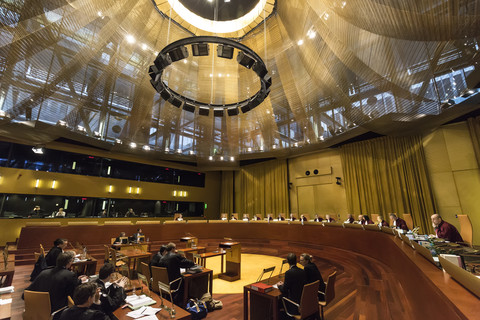[ad_1]

The fact the Polish justice minister has “unfettered, unreviewable, and non-transparent discretion” on jobs for judges undermines judicial independence, an EU legal expert has said.
This “appears to go way beyond what could be considered reasonable and necessary to ensure the smooth functioning of, and workflow within, the national judicial structure,” Michael Bobek an advocate general at the EU Court of Justice (ECJ) in Luxembourg said on Thursday (20 May).
“The seconded judges are … not subject to the ordinary rules, but to a rather special – and very troubling – legal regime,” in which the Polish minister can fire them on his whim “at any moment,” Bobek noted.
“In circumstances such as those … the minimum guarantees necessary to ensure the indispensable separation of powers between the executive and the judiciary are no longer present,” he said.
The ECJ is not to bound to follow the advocate general’s opinion, but does so in most of its rulings.
The verdict usually comes a few months after the advocate general speaks out.
Meanwhile, the Poland’s ruling nationalist and populist Law and Justice Party (PiS) has already used judicial reforms to go after judges it did not like for political reasons showed how real the problem was.
One of them, Igor Tuleya, is facing up to three years in prison on a disciplinary technicality after incurring PiS wrath.
The fact the Polish justice minister, Zbigniew Ziobro, was on the far right of even that government made matters worse.
Some EU countries, such as Ireland and the Netherlands, have halted extraditions to Poland due to fears that rule of law had broken down.
And the European Commission has launched a string of ECJ challenges as well as sanctions proceedings to try to stop the PiS juggernaut.
The ECJ case was brought to Luxembourg by a district court in Warsaw to raise the alarm.
But Polish judicial reforms are also trying to gag judges from referring questions to the EU tribunal.
And government-loyal judges on Poland’s constitutional tribunal are currently deliberating whether Polish law or EU law has primacy in the country, in a ruling which could cause a legal crisis for Poland’s EU membership.
[ad_2]
Source link